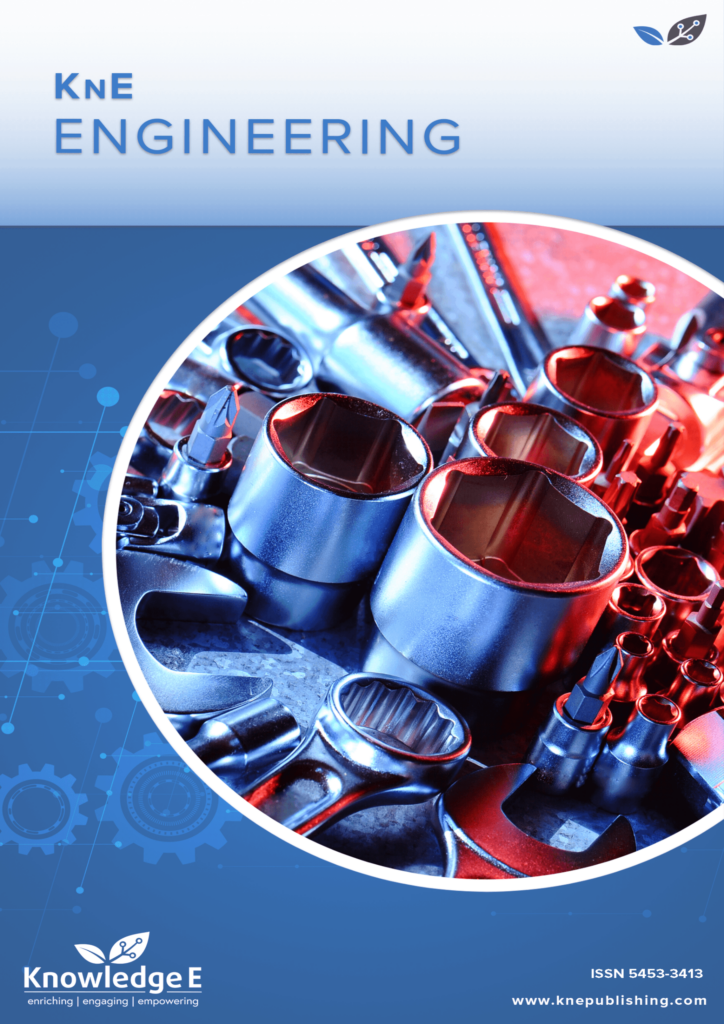
KnE Engineering
ISSN: 2518-6841
The latest conference proceedings on all fields of engineering.
Nanostructuring of Surface Layer of 1.3505 Steel By Wedge Cylindrical Tool
Published date:Apr 15 2019
Journal Title: KnE Engineering
Issue title: XIX International scientific-technical conference “The Ural school-seminar of metal scientists-young researchers”
Pages:145–149
Authors:
Abstract:
This paper discusses the issues of normal load during burnishing by a wedge cylindrical tool that influences the surface hardening of the 1.3505 steel according to the criteria of microhardness and thickness of nanostructured layer. It has been established that burnishing with a normal force of 200 and 250 N provides formation of a nanostructured layer with a 4,3…5,5 µm thickness and a maximum microhardness of 1120…1170 HV0,05.
Keywords: nanostructure, surface layer, hardening, burnishing, wedge cylindrical tool, bearing steel.
References:
[1] Kuznetsov, V.P., Makarov, A.V., Psakhie, S.G., Savrai, R.A., Malygina, I.Y., Davydova, N.A., Tribological aspects in nanostructuring burnishing of structural steels. Phys Mesomech 17 (2014) 250–264. https://doi.org/10.1134/S102995991404002X
[2] Dmitriev, A.I., Kuznetsov, V.P., Nikonov, A.Y., Smolin, I.Y., Modeling of nanostructuring burnishing on different scales. Phys Mesomech 17 (2014) 243–249. https://doi.org/ 10.1134/S1029959914040018
[3] Sundaram, N.K., Guo, Y., Chandrasekar, S., Mesoscale Folding, Instability, and Disruption of Laminar Flow in Metal Surfaces. Phys. Rev. Lett. 109 (2012) 106001. https://doi.org/10.1103/PhysRevLett.109.106001
[4] Wang, X., Xicheng, W., Zhang, J., Li, R., Hua, M., Wang, W., Formation of Nanocrystallized Structure in Worn Surface Layer of T10 Steel against 20CrMnTi Steel during Dry Rubbing. Journal of Nanomaterials 2016 (2016) 1–6. https://doi.org/10.1155/2016/ 4631851